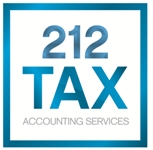 Earning an MBA is a great educational achievement for anyone to accomplish. However, this achievement comes with hard work, dedication, and a hefty tuition and expense bill. As an experienced NYC tax accountant for small business owners and individuals, I have a few ways to assist my clients in claiming deductions and credits for tuition and education expenses they incurred when earning an MBA. Education is an important part of growing your business and improving your knowledge of operating as a successful business owner. It’s also a useful tool to gain experience in business strategies, so that you can become eligible for promotions within a company. Here are a few strategies that can be used to offset the tuition and expenses that come along with obtaining this important education.
Earning an MBA is a great educational achievement for anyone to accomplish. However, this achievement comes with hard work, dedication, and a hefty tuition and expense bill. As an experienced NYC tax accountant for small business owners and individuals, I have a few ways to assist my clients in claiming deductions and credits for tuition and education expenses they incurred when earning an MBA. Education is an important part of growing your business and improving your knowledge of operating as a successful business owner. It’s also a useful tool to gain experience in business strategies, so that you can become eligible for promotions within a company. Here are a few strategies that can be used to offset the tuition and expenses that come along with obtaining this important education.
Tax credits and deductions.
The IRS allows students to claim deductions for their education and tuition expenses. These deductions also apply to adult students who are earning their MBA degree while operating their own small business or working a full-time job. Tuition and fees can be deducted from your taxes at the end of the year, up to a maximum of $4,000, so it’s crucial to keep all paperwork and enrollment information from your school. These documents may be needed to prove the expenses you incurred throughout the year to the IRS.
You also have the choice to claim a lifetime learning credit on your taxes to offset the expenses you accrued while earning your MBA. To calculate how much this credit would allow, you can compute the amount of eligible expenses you incurred (up to a maximum of $10,000) and multiply it by 20%. Keep in mind, you will need to choose whether to claim the deduction or the lifetime learning credit, because legally both cannot be claimed on your taxes. As your NYC tax accountant, I would take the time to calculate which one is more financially beneficial for your situation and use that form of credit or deduction on your taxes to save you the most money.
Claiming unreimbursed tuition.
If you were promised tuition reimbursement by a company or organization, only to be fired or laid off in the middle of pursuing your degree, you may still have claims to this unreimbursed tuition. If the MBA you are pursuing is in a field related to your previous job (where the tuition reimbursement was promised to you) and not geared toward a new industry, you may have claims to deduct this tuition and school expenses from your taxes. This can be a gray area with the IRS, so all guidelines will need to be met. With the proper proof and an explanation of your circumstances, this tuition should be deducted from your taxes. As an experienced full service tax accountant, I can thoroughly review your specific situation to ensure that the IRS will agree with the deduction claim for your unreimbursed tuition and fees.
Claiming tuition as a job-related expense.
Another possibility for compensating MBA earning expenses is to claim this tuition as a job-related expense. If you’re earning your MBA to further yourself in your career or learn more about how to efficiently run your small business, this claim may be an option for you on your taxes. This itemized deduction may also include your travel expenses, if any, to complete your education and can provide more of a tax benefit than claiming simple tuition and fees deduction or the lifetime learning credit.
As a full-service tax and accounting firm, we can help you with all your small business or individual tax and accounting needs. If you’re interested in learning more about deducting your MBA expenses on your taxes, or any other types of deductions and credits you may be eligible for, give our office a call today.


